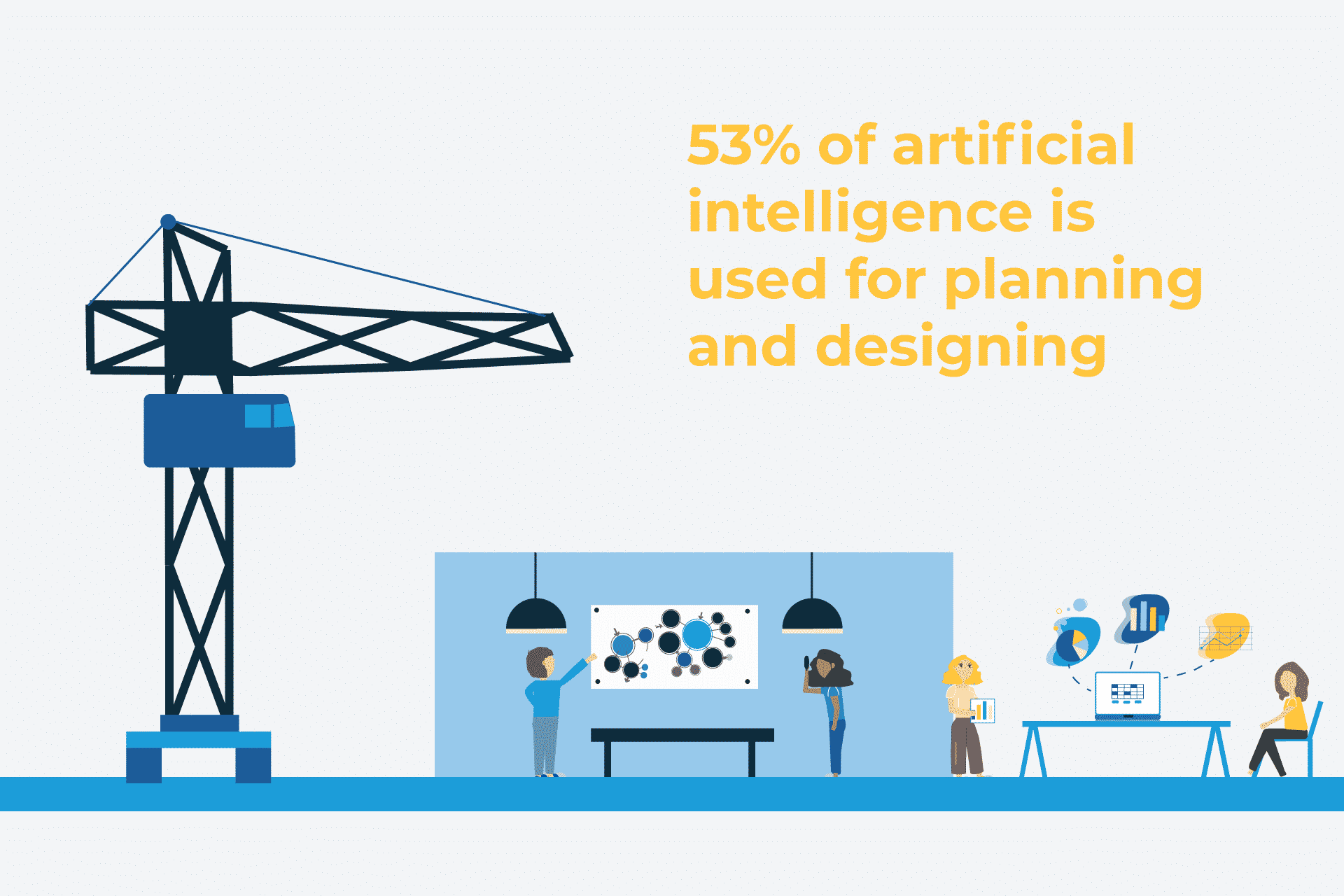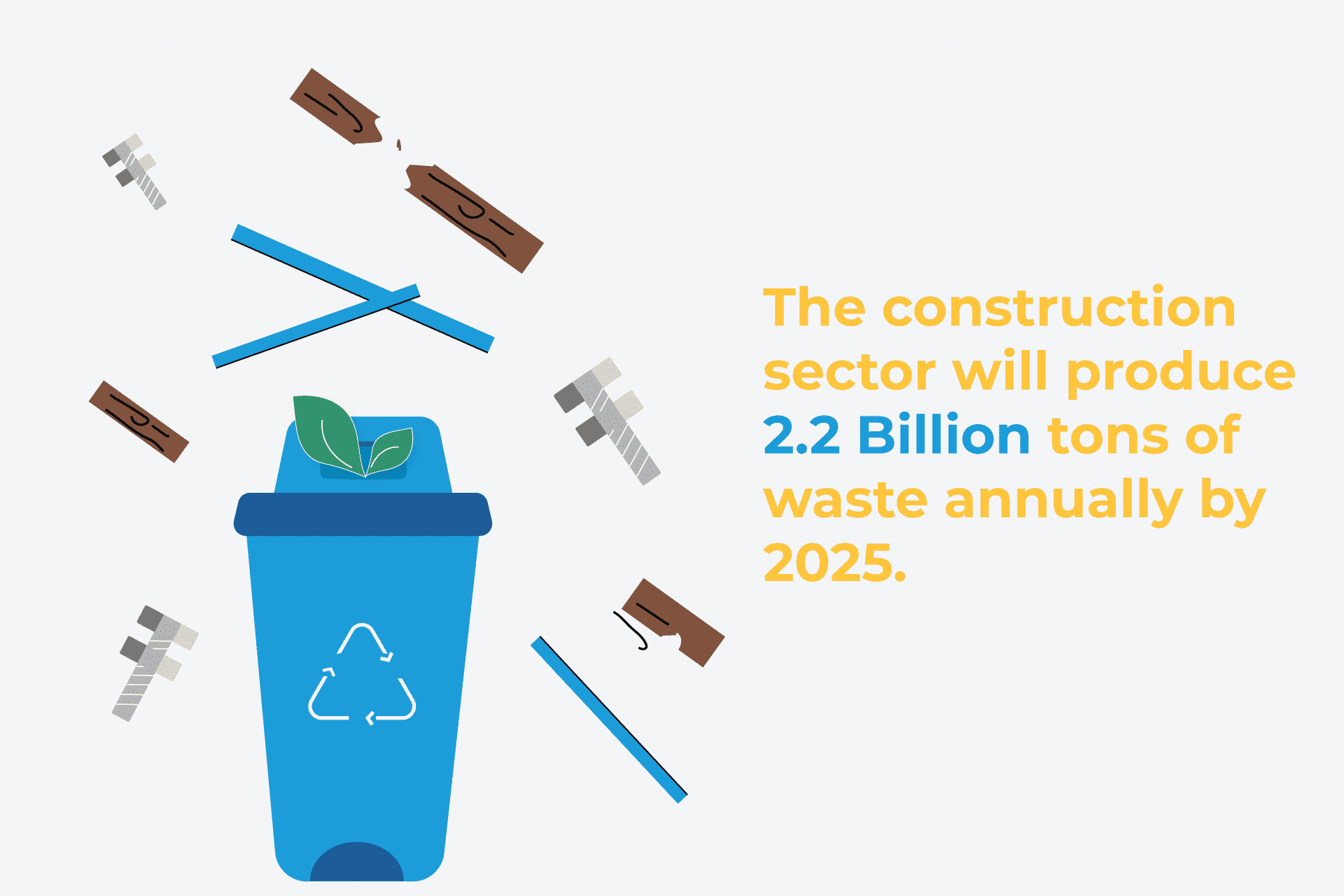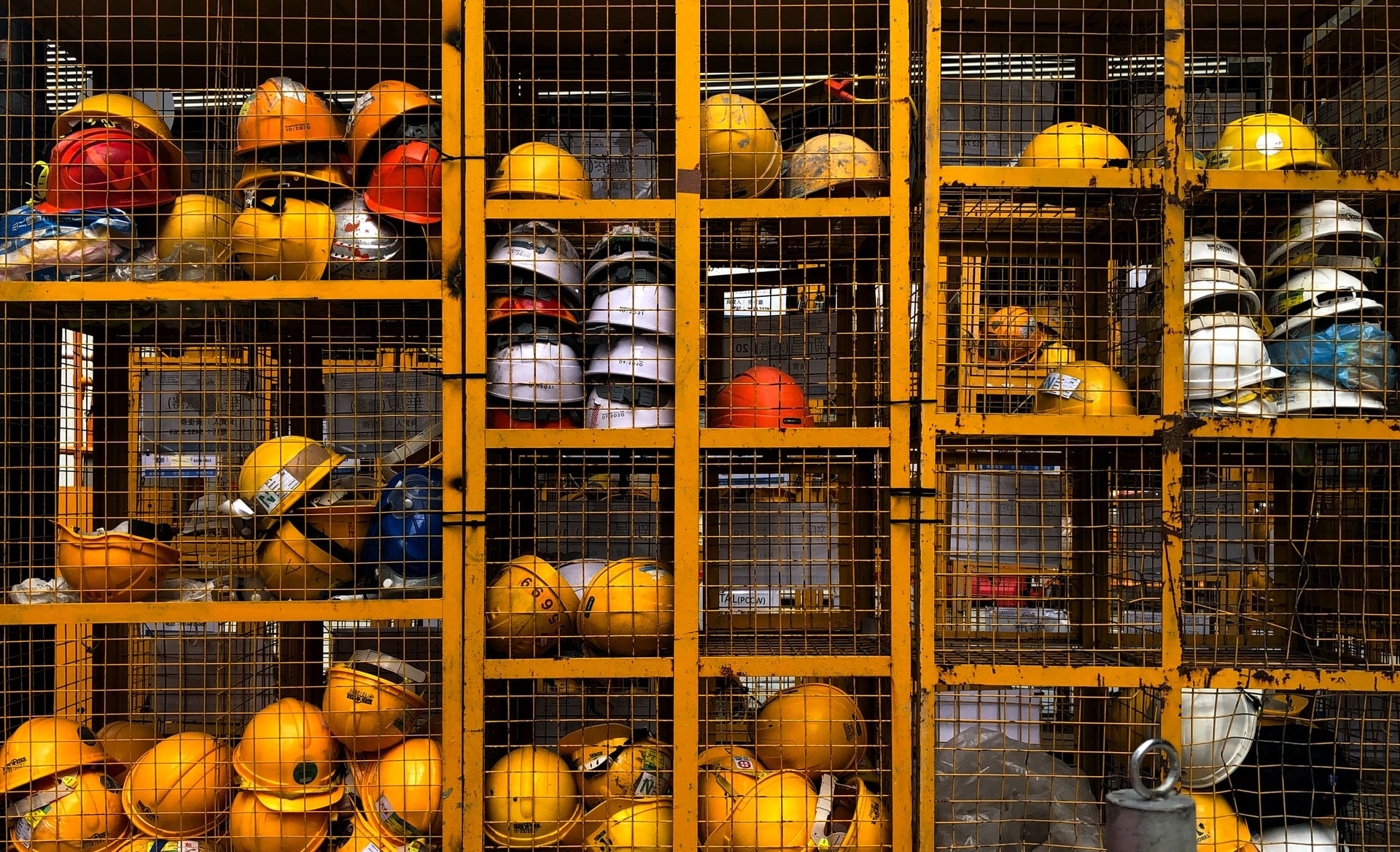Generative Design
Right now, already 53% of artificial intelligence in construction is used for planning and designing. AI can go through a huge amount of data in order to find the best output for each project. This is what a generative design is all about. Firstly, it is important to define the goal of the construction project. Secondly, artificial intelligence needs data in order to find the best solution to reach the goal. Here, BIM (Building Information Modelling) comes into place.

At its core, BIM is cross-linked planning, constructing, and the management of buildings with the help of software. Artificial intelligence is able to go through the massive amount of data collected through BIM software and then work out the best possible solution. By looking through various 3D models, every aspect can be looked at: Architecture, plumbing, and electrical plans, engineering, and even which steps each team should ideally take.
Therefore, artificial intelligence is able to analyze each situation for the best outcome. If the established plan and model clashes with the data analyzed by artificial intelligence, then it recommends alternative models and plans. The planning team does not need extra time to come up with a new strategy, but can already pick one selected and go with an alternative.
Project planning made easy through artificial intelligence
More than 35% of construction managers spend their time resolving conflicts, dealing with design flaws, or rework other things. Predictive AI can help to potentially reduce risks, costs overrun, predict design problems, or delay of the project. This allows a better decision-making process, planning for eventualities, and helps construction managers to deal with more important things. It determines where the past construction sides might have had problems. In addition, artificial intelligence improves the quality of construction by learning from past data.
Another thing to consider in planning a construction site is waste. Experts predict that by 2025, the waste produced annually in the construction sector will increase to 2.2 billion tons globally. Since artificial intelligence provides the best possible outcomes for the construction processes, it can also reduce waste. Through gathered data, artificial intelligence knows how much materials might be needed and optimize logistics. In the future, artificial intelligence will use a new way of helping with project planning, named “reinforcement learning”. This way, artificial intelligence is able to present almost endless combinations and alternatives by gathering data from similar projects.

More safety by using artificial intelligence during construction
Similar to the way of planning projects, artificial intelligence also helps with reducing possible dangers. According to OSHA, construction workers are 5 times more likely to die than in other professions. They further state that most deaths in construction are caused by falls, electrocution, struck by or caught in-between an object. These numbers show that there need to be safer measures for the workers on the construction sites. Artificial intelligence is able to analyze different pictures depicting constructions and even workers to tell the project managers where safety hazards occur.
Data gathered from past accidents also help to understand what went wrong and how they can avoid such a situation again. It becomes more predictive and is able to tell potential dangers before something happens. Artificial intelligence is able to tell in advance if weather, equipment, or other factors are causing any risks. This way, the workers know precisely what to look out for.

Artificial intelligence and post-construction
Artificial intelligence is not only part of the whole process but also after it. Like mentioned before, BIM helps to gather data in software in various parts of the construction project, such as architecture, the construction itself, or even plumbing. This helps the future of a construction project as well: For example, a finished building will get extended and the data gathered by BIM will tell the construction managers how they can reach their goals the best way possible. But this data does not only help them but also other construction managers as they are able to use this data for themselves. It is like a big data pool of construction projects.
Artificial intelligence in construction needs consideration
Compared to other industries, AI will most likely not replace the human workforce. Instead, it will change the business model in construction sectors, reduce costs by improving the planning and work process. In addition, it will reduce injuries, reduce construction waste and make the whole process much more efficient. Investing in artificial intelligence sounds like a good idea, however, it is also very costly. As we talked about the advantages and disadvantages of artificial intelligence before, creating a well-established AI system is not cheap. It takes a good strategy and continuous maintenance which means continuous costs.
Another problem could be the reliability of artificial intelligence. In the medical field, sometimes doctors rely too much on artificial intelligence which leads to misdiagnosis and in the worst case, to death. Artificial intelligence is not perfect and can only work with the data it receives. Humans also make mistakes and if there is too little data or maybe the wrong data for the situation, then artificial intelligence is not able to operate properly.
So even though artificial intelligence is a part of the construction process, it still needs humans to overlook everything. Another important factor to incorporate artificial intelligence in construction is asking the workers. They know best what is wrong, where they need improvement, and how to reduce problems. Their feedback is valuable before investing in new technology. This is crucial to then come up with a suitable strategy to set up artificial intelligence to improve the construction process.
Conclusion
According to MarketsandMarkets, the global market of artificial intelligence in construction will grow to USD 1,831.0 Million by 2023. The statistics show that the number is only rising and will become a huge part of the future. Digitalization is only rising and it is a question of time until artificial intelligence becomes a self-evident part of the construction sector. What do you think? How do we implement artificial intelligence into the construction sector properly? Do you have a strategy? Join our discussion group below or at wethink.eu and discuss with other THINKERS on this topic! Looking forward to reading about your ideas.
Join our Strategy Groups!

You want to discuss more about this topic? Join our Strategy Group on Construction and continue the discussion on wethink.eu! Click the button below to register and to join our groups. If you are not sure how to do that, check out our FAQ page or contact us at info@wethink.eu.
Sources
https://constructible.trimble.com/construction-industry/the-benefits-of-ai-in-construction
https://www.osha.gov/data/commonstats
https://www.bigrentz.com/blog/construction-waste-statistics
https://www.marketsandmarkets.com/Market-Reports/ai-in-construction-market-235710349.html
https://constructionblog.autodesk.com/construction-industry-statistics/#Opportunities





